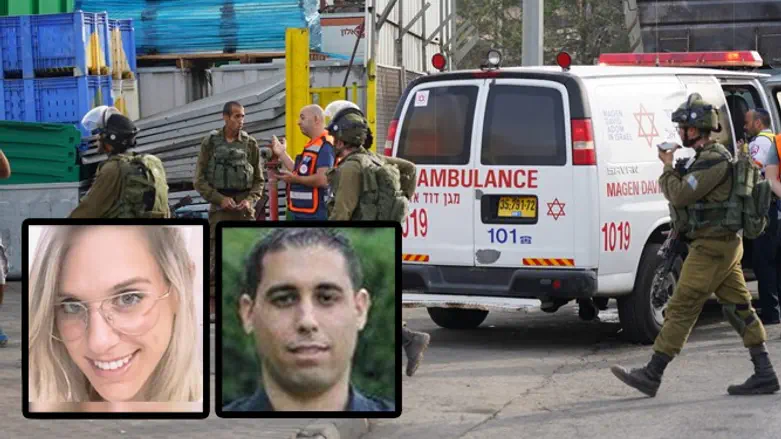
The military court today heard the case of Muhammad Abrahim Khursa, accused of not preventing the attack in which Kim Yehezkel-Levengrund and Ziv Hajbi were shot dead at the Alon factory in Barkan.
At the hearing, the prosecution asked the judge to approve the plea deal in which the parties agreed on a sentence of 36 months imprisonment for the defendant in addition to monetary payment, after the judge rejected the previous plea deal which stood at 33 months imprisonment.
Khursa was charged with conspiracy to grant asylum, and the indictment states that although he knew about the weapons in the attacker's possession and his intentions, he did not report or prevent the attack.
Rafi Lebengrund, father of the late Kim Yehezkel, was present at the hearing and expressed his opposition to the plea deal: "I'm sure that my daughter's life is worth much more than 3 years or NIS 1,500. Ziv Hajbi's life isn't worth that little either. It's ruined my household. I have no wife, I have no children, I hardly have grandchildren. Kim's son totally won't remember her, he was a year and 4 months old. He only knows stories about his mother, and even when he grows up he won't remember."
He also said: "Handing down a sentence of three years is a joke. It won't deter anyone, it won't do the job. It's like when they didn't destroy the terrorist's house, claiming the family wasn't involved.
"The punishment should be more dissuasive. He should get the maximum, which he deserves for this offense. That too isn't enough, but at least the minimum. I have to live with this thing all the time I have left to live," he added.
Advocate Chaim Bleicher on behalf of the Honenu Organization, who accompanies Rafi Lebengrund, said: "A terrorist who carries out an attack does so with the support of his environment. Behind every attack that takes place, there are many terrorists who support and cooperate and even try to carry out attacks themselves. In order to dry up terrorism, deterrent punishments must be given to every terrorist who is involved in any way in the attack. The defendant knew about the terrorist's plans and did nothing to stop them and we tend to think - although this has not been proven in court - that the terrorist also took part in planning and carrying out the attack. Therefore, we expect him to be given the maximum possible punishment."
The verdict in the case will be given at a later date.